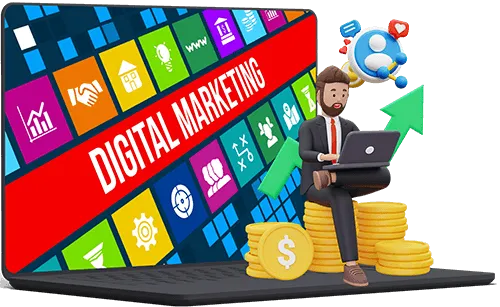
Automate Your Business Videos with GPT: A Complete Guide
Automate Your Business Videos with GPT: A Complete Guide
In today’s competitive digital landscape, video content is no longer a luxury—it’s a necessity for brand visibility, lead generation, and customer engagement. Yet, traditional video production can be time-consuming, resource-heavy, and expensive. The good news? GPT-powered AI tools are revolutionizing the game, allowing businesses to automate video creation at scale—without sacrificing quality or creativity.
In this comprehensive guide, we explore how to leverage GPT technology to automate your business videos, from ideation and scripting to voiceovers and final production.
Why Automate Business Videos with GPT?
Automating video production with GPT (Generative Pre-trained Transformers) allows businesses to:
Save time and resources by cutting down manual scriptwriting
Generate high-quality, on-brand scripts in seconds
Maintain consistency across all video content
Quickly adapt content for multiple platforms
Scale video marketing campaigns effortlessly
Whether you’re a startup, agency, or enterprise, GPT enables cost-effective, scalable video content creation without needing a full production team.
Step 1: Define Your Video’s Purpose and Audience
Before automation begins, get clear on the "who" and the "why." Ask yourself:
Who is the target audience (demographics, pain points, interests)?
What action should they take after watching the video?
Is the goal to educate, convert, introduce a product, or entertain?
Use this information to structure a clear brief that GPT will use to generate contextually relevant scripts.
Pro Tip: Include your brand voice and tone preferences in your prompt (e.g., “Write in a professional but friendly tone targeted at B2B SaaS users.”)
Step 2: Generate Video Scripts Using GPT
With your objectives in place, use GPT-based platforms like ChatGPT, Jasper AI, Copy.ai, or Writesonic to create high-converting video scripts.
Prompt Example:
“Write a 90-second explainer video script for a productivity app targeting remote workers. Keep the tone conversational and focus on pain points like distraction and poor time management.”
Key Features to Include in Your Script:
A strong hook to grab attention in the first 5 seconds
A clear problem-solution structure
Emotional triggers to build relatability
A compelling call-to-action (CTA)
Most GPT platforms can also produce multiple script versions, so you can A/B test and refine messaging over time.
Step 3: Add Visual Cues and Production Notes
While GPT specializes in language, it can also generate basic production guidance if prompted correctly. To streamline editing and design, include visual directions within the script.
Enhanced Prompt Example:
“Write a 60-second video script with scene directions, background music suggestions, and on-screen text for a fintech startup launch.”
GPT can output content like:
[Scene opens with a stressed professional looking at bills]
Voiceover: "Managing finances shouldn't feel like solving a puzzle..."
[Cut to app demo with upbeat background music]
Text overlay: “Instant budgeting. Real-time alerts. Total control.”
Step 4: Use AI Voice Generators for Narration
No voiceover artist? No problem. After GPT generates your script, use AI voice tools like:
These platforms offer hyper-realistic voices in multiple tones, accents, and styles—perfect for maintaining a consistent, professional narration across all your videos.
Bonus Tip: Test different voices for various personas (e.g., youthful for social media, formal for corporate pitches).
Step 5: Turn Scripts into Videos with AI Video Generators
Once your script and voiceover are ready, it’s time to automate the entire video production process. Tools like:
Pictory
Synthesia
Lumen5
Animoto
Runway ML
…allow you to upload scripts, select visuals, animations, transitions, and generate studio-quality videos within minutes.
Many of these tools also allow GPT integration, meaning you can generate, edit, and publish—all in one seamless workflow.
Step 6: Optimize for SEO and Platform Distribution
Automation doesn’t end with video creation—it continues with distribution and optimization. GPT can help here too.
Use GPT to:
Generate SEO-optimized titles and descriptions
Write social media captions
Create hashtag strategies
Draft email teasers
Produce blog articles or landing pages based on your video content
Example Prompt:
“Write an SEO-optimized YouTube description for a video about how our productivity app helps remote teams save 10 hours a week.”
Step 7: Repurpose Video Content for Maximum ROI
With GPT and AI tools, a single video script can become:
Short-form Reels or TikToks
Infographics and slide decks
Blog content and newsletters
Podcast segments or audio snippets
Simply prompt GPT to reformat the video script into the content type you need.
Example:
“Rewrite this video script as a LinkedIn carousel with five slides explaining the key benefits of our software.”
This approach ensures maximum reach with minimum effort.
Best Practices to Follow
Always review and humanize AI-generated content before publishing
Train GPT with your previous high-performing content to improve results
Keep your brand voice consistent across all outputs
Use analytics to continuously refine and optimize prompts
Invest in premium GPT tools and voice generators for enterprise-level quality
Industries Benefiting Most from GPT Video Automation
While every business can benefit, these industries are seeing particularly strong ROI:
SaaS and tech startups
E-commerce
Healthcare and wellness
Real estate and mortgage
Education and coaching
Finance and insurance
Whether it’s onboarding new users, showcasing a product, or educating leads, GPT automation reduces friction and accelerates video content at scale.
Conclusion
By automating your business videos with GPT, you unlock a powerful content engine that is scalable, efficient, and tailored to your brand’s voice and audience. The future of content marketing is intelligent, fast, and personalized—and GPT is leading the charge.
Adopt this technology today and start transforming your video marketing strategy from a bottleneck into a growth engine.

